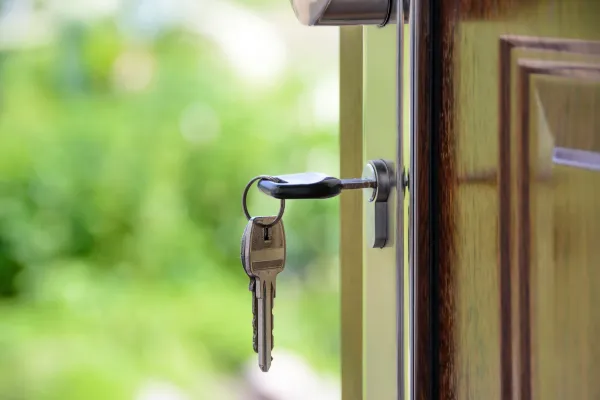The agreement in principle – another one of those property terms you may have heard of, but possibly don’t understand. Let our property experts at SOLD.CO.UK clear that up for you with this handy guide.
Perhaps you are currently looking to apply for a mortgage. You have saved for long enough and are now hopefully making your first steps towards getting onto the property ladder.
An agreement in principle, or AIP, is where you take those first steps. You simply visit the bank or apply online to see how much you could be eligible to borrow. By providing the bank or broker with the required information, you could receive an answer almost immediately. You’d normally have confirmation within 24 hours.
If that decision is in favour of lending, you have your AIP, meaning you can now start looking at properties within your budget.
Just remember, this is not to say you now have your mortgage. This is simply what the bank may offer, should you apply for a mortgage.
When should I get an agreement in principle?
Ideally, before you start deciding on a potential new house, you should get an agreement in principle. Most estate agents would want to see one before going any further.
As with any financial undertaking, it would be sensible to get advice from a variety of lenders before proceeding with an agreement in principle. Too many applications for one could severely harm your credit score.
What do I need to get an agreement in principle?
Before contacting the bank, you will need to make sure you have all the information they may need. Without it, they will not be able to proceed. Be prepared to show them:
- All income for those applying
- All outgoings for those applying
- Your 3 year address history
As well as reviewing this information, a soft credit check will also be performed to see if you fit the required criteria.
Does an agreement in principle affect my credit score?
Yes and no – it all depends on which bank or mortgage broker you go to. Some offer the soft credit check, which doesn’t do any damage to your credit score. Others will perform a hard credit check. This leaves what is known as a footprint on your score.
It is always advisable to check what type of credit check will be conducted. Too many hard checks in a short period of time could really damage your potential to borrow in the future.
If you are unsure of your credit score, you could always contact one of the leading credit agencies. This will let you view your full report and have a better understanding of your current rating. Equifax and Experian are two of the most common.
How long does an agreement in principle last?
Typically, an agreement in principle lasts 90 days, although some lenders offer them for just 30 days. Check before applying to see what your lender is offering.
Sometimes, a change in circumstances can mean that your original agreement in principle is no longer valid, so you would need to obtain a new one. Changes that would normally determine the need for a new AIP would be increased debt, loss of income or increased regular spending.
Will an agreement in principle guarantee a mortgage?
No – whilst it puts you in a good position for getting a mortgage, there is no guarantee. Once you have your AIP, you can apply for a mortgage with the bank, but it could still be declined. Reasons for being declined vary, but they tend to centre around the lending criteria of the bank or the personal circumstances of the applicant changing.
A benefit of having the AIP is that the bank or broker will already have much of the information required to begin the mortgage application process. In essence, they have the proof you can afford to pay the mortgage. They just need to delve a little deeper to make sure it is wise to lend to you.
We would always recommend you inform the bank of any changes to your own circumstances as it may help you application.
What are the benefits of having an agreement in principle?
Whilst the mortgage is not guaranteed, the fact that you have shown you can afford one works in your favour.
An agreement in principle is not attached to any property. It is simply an outline of what you can borrow. This means you can browse the market with a fairly accurate idea of what your budget is.
Not only this, but if in the past you have been declined for credit, the agreement in principle is hugely beneficial as it shows the potential improvement in your credit score.
What is the difference between an agreement in principle and a mortgage offer?
The main difference here is that an AIP is agreed whilst you are still looking for a property. The AIP proves you can afford the mortgage payments, but does not confirm any offer. The mortgage offer is the concrete offer from the bank or broker to lend you the required funds. This requires a more in-depth application than an agreement in principle and, as mentioned before, requires a full credit check.
Is an agreement in principle available for first-time buyers?
Yes, and in many cases, you are encouraged to get one. With no properties to sell, you are relying on a mortgage, less any deposit, to pay for your first house. By having the AIP, everyone involved in the process will be reassured that you will be able to finance your move.
Is my agreement in principle legally binding?
No, not really, although it has been known for some people to challenge the withdrawal of an AIP. It basically formulates the groundwork for a potential contract between two parties. So, with no contract, it is not legally enforceable. You couldn’t, for example, contest the terms of a mortgage offer. If your application flags up some additional information, the bank has every right to change the terms of any mortgage offer.
If you are looking to sell your house in order to finance a new property, contact the expert team at SOLD.co.uk. We offer an instant valuation via our value my house calculator. We can also guarantee a quick house sale and sell your house for free, enabling you to get moving on your property dreams. Fast.
















